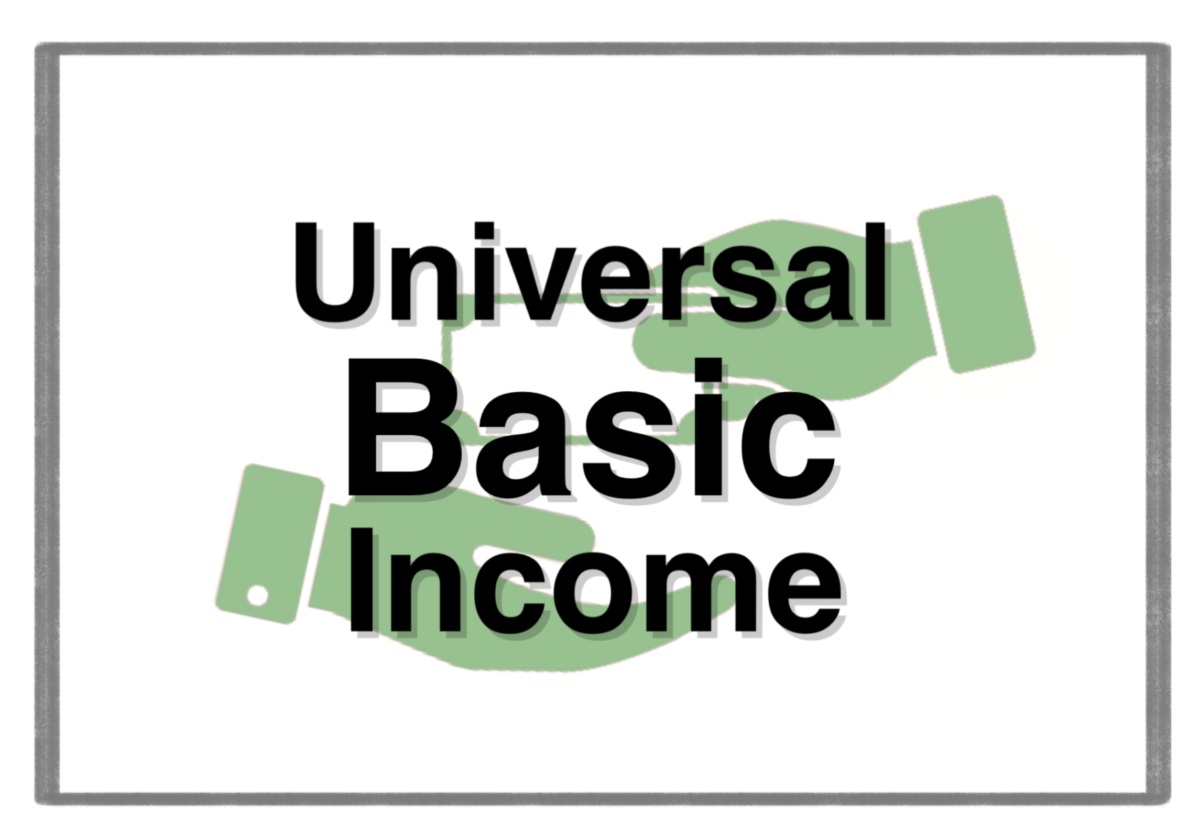Cover Photo : by Nutt.T
Volume 5, Number 2 : December 2020 | Article
The idea of handing out free money may sound like bad economics, however, it is actually nothing new. Back in the 16th century, Sir Thomas More proposed a society where every citizen has a guaranteed income in his work, Utopia. More recently, Andrew Yang ran in the 2020 presidential election with a Universal Basic Income program as his flagship public policy. In fact, basic income programs are gaining popularity in the public policy arena. Yet, this proposal is still facing many political and economic obstacles. This article aims to explore the advantages and disadvantages of a Universal Basic Income and briefly discuss it’s application in Thailand.
In the simplest sense, a basic income is a government program where every citizen receives a set amount of money every given period of time. Theoretically, this program was designed to alleviate poverty and provide financial security as every citizen is guaranteed some money to live on regardless of upbringing or employment.
There are significant advantages of this policy over existing government policies.
The greatest strength of a UBI is its simplicity. Traditional welfare programs require means-testing and evidence to determine eligibility. This takes time. Not to mention, there are high bureaucracy costs from processing a large amount of paperwork. Alternatively, eligibility for a universal program can be something as simple as holding a citizen ID. Removing the bureaucracy could be the difference that grants welfare benefits to those who need it within a week instead of months.
Secondly, a universal program does not cause a poverty trap. Traditional welfare programs have guidelines for eligibility which targets those who earn less than a set threshold, for example, the poverty line. If a recipient starts earning too much, they may no longer be eligible for that program. This discourages the poor from improving their lives and keeping them in poverty, hence the poverty trap. A universal program removes this possibility as every citizen will receive the benefit regardless of level of income or wealth.
Lastly, a basic income removes the stigma of unemployment. Currently, prolonged unemployment is an inevitable road to poverty. A basic income can mitigate this. When citizens are not financially burdened due to unemployment, they could turn to pursuing further studies or training. Alternatively, it allows workers to wait for better jobs instead of being forced into one under financial pressures. Most relevant considering the current pandemic, it lowers the burdens of unemployment due to external factors which is not the fault of workers. In general, unemployment may no longer be one of the economic evils which have to be traded-off for lowering inflation, or at the very least, it will be less of a burden on the unemployed.
Despite these advantages, there are some serious economic concerns which are the largest obstacle in implementing a basic income.
The hardest question to answer is “how to fund this program”. Providing money (even at the poverty line) to the entire population is no small sum. There is not one-answer-fits-all answer to this question given the diverse context of each nation. Some propose funding the program entirely through tax revenue. However, this may be politically unpopular to nations with great disparity between middle-income groups and low-income groups.
Secondly, there are concerns that giving free income regardless of employment will incentivise laziness. This has a few implications. It may reduce labour participation as people prefer to live on free income. This will affect jobs that pay very little as there is an alternative that does not require labour. Additionally, it does not motivate workers from pursuing new skills. This could severely hurt them as they cannot compete in the job market.
Lastly, a UBI may end up hurting the poorest income group in the long run. Raising every citizen’s income may result in inflation. This is the result of a sudden increase in demand as a response to the extra income. The higher prices will make goods unaffordable to those in the lowest income group. In the long run, a UBI may not raise the standard of living for every member of the society.
A UBI program in Thailand may be the revolutionary redistributive program necessary to lift the country’s lowest income group out of poverty. Despite experiencing falling poverty rates for the last 30 years, Thailand is now reporting a rise again in 2019. This trend may continue as Thailand, like the rest of the world, is facing the effects of increasing automation leading to higher rates of unemployment. Although a UBI does not ensure complete elimination of poverty, perhaps it is the time to eliminate the negative consequences of unemployment. The context of the Covid-19 pandemic may be the perfect time for such a program as unemployment rates rise with no clear sight of when things will return to normal.
This video explores a Universal Basic Program in more detail. For those interested, this video will provide more information into these programs and looks further into it’s feasibility.
by Kurzgesagt – In a Nutshell












































You have brought up some good consequentialist arguments both for and against UBI (I know your position is on the former)! As a determinist, I’m someone who supports UBI based on a deontological point of view as we cannot choose how we are born, our brain architecture, or the environment we’re raised in. Hence, if society truly cares about equity, a UBI would help to mitigate the unfairness of this world. When it comes to funding it, I believe there are other ways other than placing the tax burden on the poor or middle class. For example, how about dealing with tax-dodging corporations with offshore accounts in tax havens? It will be difficult to challenge their capitalistic power, so reaching the critical mass necessary for such a drastic change would require a restructuring of ideological institutions. I wouldn’t worry too much about people not working if we change people’s attitudes toward work. Currently, I believe schools and parents focus too much on students getting a high-paying job instead of what they intrinsically enjoy. Academic institutions must help people discover themselves more. I believe articles like these are a first step toward undoing unreasonable negative stigmas of the UBI, but it’s too niche to gain mainstream attention. But, who knows? Maybe COVID-19 really changes things.
I totally agree with you! And i’d like to point out a few more things. In my opinion, yes! cash hand outs seem undesirable in economics, but if we have empathy for those people who are really in need for money and working their ways to making money, having some kick-starts like universal income seems to be a good choice. An obvious example of this can be seen during the pandemic, many countries’ governments chose to hand out cash for their unemployed people to help them survive.
However, i can also imagine how this policy could be unpopular if we imposed it, because the middle income people who are the majority of people in the country might feel like they have to bear the burden of this policy.